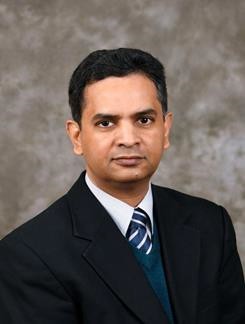Can Modern Power System Achieve 100% Renewable Energy?
IEEE PI2 Austin, November 13th, 2023, Distiguished Lecture Meeting Online ONLY
For PDH hours, please email the PI2 Secretary, Haley Hirschfield at HaleyHirschfeld.org or pi2-secretary@ieee.org.
The presentation focuses on the challenges and opportunities of integrating renewable energy resources (RERs) into the power grid, especially if and when can the modern power grid achieve 100% RER integration. First, the status of the RER-integrated power system implementations in various parts of the US is discussed. Then, major challenges in the design and operation of 100% RER-based electric power systems are illustrated. Further, the problems associated with maintaining the stability of the grid while integrating RERs, especially the angular, voltage, and frequency stability during normal operation, outages, and restoration phases will be addressed. Topics such as short circuit analysis and protection coordination, black start restoration, grid resilience, reliability, and electric vehicle integration will be some other key points of discussion. Then, major mitigation methods to circumvent some of the challenges to achieve a 100% RER-integrated electric grid are discussed. This includes local control, system-wide mitigation measures, network strengthening requirements, and the addition of grid support resources such as battery energy sources. The talk concludes by illustrating the critical areas that require immediate attention for the enhancement of the grid to achieve 100% RER integration.
Date and Time
Location
Hosts
Registration
-
 Add Event to Calendar
Add Event to Calendar
Loading virtual attendance info...
Speakers
 Sukumar Kamalasadan
Sukumar Kamalasadan
Can Modern Power System Achieve 100% Renewable Energy?
The presentation focuses on the challenges and opportunities of integrating renewable energy resources (RERs) into the power grid, especially if and when can the modern power grid achieve 100% RER integration. First, the status of the RER-integrated power system implementations in various parts of the US is discussed. Then, major challenges in the design and operation of 100%
RER-based electric power systems are illustrated. Further, the problems associated with maintaining the stability of the grid while integrating RERs, especially the angular, voltage, and frequency stability during normal operation, outages, and restoration phases will be addressed. Topics such as short circuit analysis and protection coordination, black start restoration, grid resilience, reliability, and electric vehicle integration will be some other key points of discussion. Then, major mitigation methods to circumvent some of the challenges to achieve a 100% RER-integrated electric grid are discussed. This includes local control, system-wide mitigation measures,network strengthening requirements, and the addition of grid support resources such as battery
energy sources. The talk concludes by illustrating the critical areas that require immediate attention for the enhancement of the grid to achieve 100% RER integration.
Biography:
Sukumar Kamalasadan is a Professor and Distinguished Scholar of electric power engineering at the University of North Carolina at Charlotte (UNCC) and the Director of power energy and intelligent systems lab (PEISL) within the Energy Production and Infrastructure Center (EPIC) at UNCC. He received his Ph.D. degree in electrical engineering from the University of Toledo, OH in 2004. His
research interests include inverter-based resources modeling and integration, data-driven approaches to power grid modernization, smart grid, microgrid, power system operation and optimization, and power system dynamics, stability, and control. Prof. Kamalasadan’s research for the last 20 years has resulted in tools and methods that have a high-level impact on electric utility modernization
with a fleet-wide deployment of his tools that enabled modern grid management and control towards 100% integration of renewable energy. His research work has secured more than $12M in grants and contracts notably from the US Department of Energy, National Science Foundation (NSF), Siemens Energy, Duke Energy Corporation, Schweitzer Engineering Lab, and several other industries. He is the chief architect of Duke Energy Smart Grid Laboratory at UNCC, a $5M facility. Prof. Kamalasadan has co-authored more than 250 refereed journal and conference articles and has received several awards from IEEE and NSF including the National Science Foundation CAREER award. He has delivered more than 100 talks in the form of tutorials, keynotes, panels, and webinars/workshops at various international IEEE conferences.

